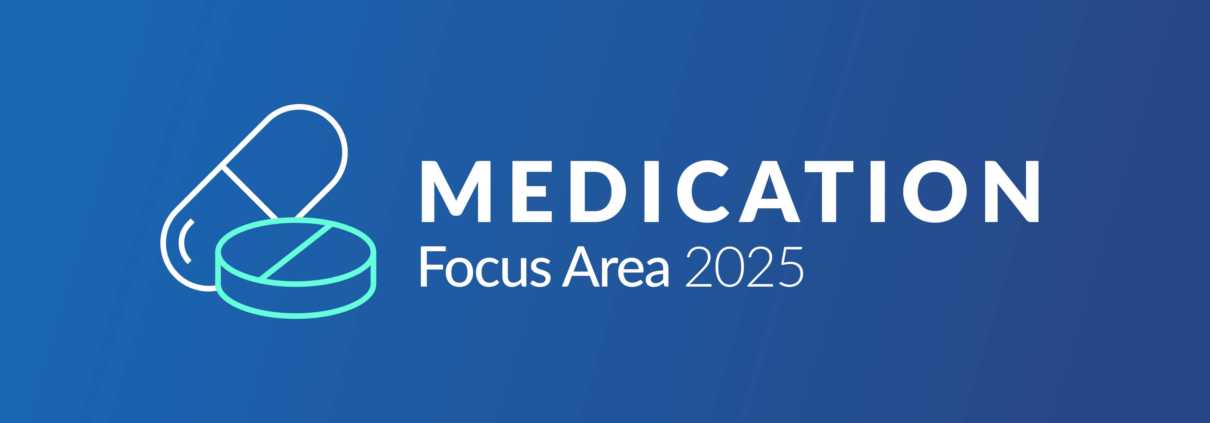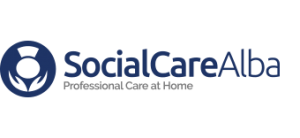
Lead: Jeanny Jarabejo (BSc Nursing)
Link: TBC
Goal:
To improve medication compliance for service users, ensuring safer and more effective management of medications for improved health outcomes.
Action 1
Review and Rationalise Medication Plans
What:
Work with GPs and pharmacists to reduce unnecessary medications and simplify regimens where possible.
Why:
Reducing the number of medications and administration times can improve compliance and reduce risks of side effects or errors.
Outcome:
1 January 2025
All service users who are identified as level 3 or where Social Care Alba (SCA) collects medication on their behalf have moved to pharmacies closer to their home, thereby reducing travel time. Fewer pharmacies have been used, thereby making building relationships with each pharmacy easier. Those service users on a weekly delivery have, where possible moved to a monthly collection, reducing the number of pick ups required and lessening the risk of medications being out of stock.
28 February 2025
Jeanny has worked with service users, families, pharmacies and GPs to reduce unnecessary medications. The goal is to have less medication, taken on fewer occasions. Simplifying the medication regime allows people to maintain their independence by managing their own medication, reduces errors and side effects from taking medications which are no longer required.
1 June 2025
Jeanny continues to work with service users, families, pharmacies and GPs to reduce unnecessary medications. No further updates are required as this is an ongoing process.
Action 2
Ensure Medication Administration Charts (MAR) are available to all Service Users at Level 3
What:
Require that all Level 3 Service Users (SU) have a clear medication administration chart (MAR chart) provided by their pharmacist.
Why:
A MAR chart ensures accurate and consistent medication administration by carers. It acts as a record of the medication delivered by the pharmacy within a set time period. Together these allow easier audit of stock, facilitates the return of old medication, identifies any instructions given by the GP and allows accurate population of electronic medication records (eMAR).
Outcome:
1 January 2025
All service users at level 3 have an accompanying MAR supplied by the dispensing pharmacy. MAR charts are photographed and added to SU files on PASS and are used to update the eMAR system. This allows SU, families and SCA to monitor medication prescribed, delivered and taken.
28 February 2025
As people move from one level to another Jeanny has requested MAR sheets for those now on medication level 3. These are photographed monthly and uploaded to PASS.
1 June 2025
An audit of all service users requiring level 3 medication support was conducted. This included photographing and uploading MAR charts, checking the safe storage of medicines, administration records, availability of medications, pharmacy collections and deliveries.
Action 3
Implement Electronic Medication Recording (eMAR)
What:
Transition to eMAR for all Level 2 and 3 service users to digitise medication records.
Why:
eMAR reduces errors, improves record-keeping, and provides real-time updates for management and families.
Outcome:
1 January 2025
All SU at level 2 or 3 have access to eMAR. This allows 24/7 real time monitoring of medication administration for S.U, families and care staff.
28 February 2025
eMAR remains in place for those on level 2 or 3.
1 June 2025
An audit of all eMAR records was conducted with the findings uploaded to service users’ PASS accounts. SCA plans to participate in a trial of a new TEC product from Finland. The product is a medication dispensing robot from Evondos – more information can be found on their website: Medication dispensing service | Evondos
Action 4
Provide Medication Management training, open to families
What:
Train staff, service users, and their families in medication management, including proper storage, recognising side effects, and the importance of adherence.
Why:
Educating everyone involved reduces errors and increases confidence in managing medications.
Outcome:
1 January 2025
All staff including new applicants complete medication training online and by attending medication workshops. Employees undergo observed practise monthly for the first 3 months, then 2 monthly thereafter which includes medication management. All staff are required to read core company policies which includes medication administration. A medication app and training workshops are available on both the staff and SU/Family websites.
28 February 2025
Medication management training has been delivered twice in the last quarter, and has been open to families. Future dates will continue to be posted on the website. Martin, who is the Service User advocate, attended the training to give his insights into medication administration, from someone receiving support.
1 June 2025
Medication management training has been delivered 3 times in the last quarter, and has been open to families. Future dates will continue to be posted on the website. Martin, who is the Service User advocate, attended the training to give his insights into medication administration, from someone receiving support.
Action 5
Conduct Regular Medication Audits
What:
Perform monthly audits of medication administration records to ensure compliance and identify patterns of missed doses.
Why:
Regular audits improve accountability and help identify areas for improvement.
Outcome:
1 January 2025
We undertook a large-scale review of medication administration across all SU, which included wording of medication plans, audit of medication levels, training delivered, pharmacies used, compliance aids, safe storage and medication delivery or mAR supply issues.
28 February 2025
As part of a review of all the assessments we use, everyone’s medication assessments were updated and reviewed in the past 4 weeks.
1 June 2025
An audit of all service users medications was conducted. This included photographing and uploading MAR charts, checking the safe storage of medicines, administration records, availability of medications, pharmacy collections and deliveries. Where appropriate we have requested medication reviews from G.P.s and reassessments from Social Care Direct.
Action 6
Develop a Medicine Compliance Resource Hub
What:
Provide a centralised resource hub with easy-to-understand guides and videos on medication management.
Why:
Empowering users and families with information promotes independence and compliance.
Outcome:
1 January 2025
We created 2 dedicated websites, one for SU/Families the other for Staff. These sites have guidance on apps, training and resources related to medication management. In addition all SU or their families have access to Open PASS which includes medication monitoring through eMAR.
28 February 2025
Stephen added to the website details about the differences between medication levels as this was a common question from those we support and their families.
Action 7
Conduct an Impact Review
What:
Evaluate the project’s outcomes through service user and family surveys, compliance statistics, and audits.
Why:
Regular evaluation ensures accountability and identifies areas for improvement.
Outcome:
1 January 2025
We continue to schedule regular service reviews, staff observations, medication audits and reports. These are summarised and presented to our Shared Management Team (SMM) every quarter for evaluation. Any amendments to this plan are reflected online within 7 days of agreement.
Addendum
Useful Documents and Resources
- Royal Pharmaceutical Society – Managing Medicines in the Community
- Care Inspectorate Medication Management Procedures (PDF)
- NHS Inform – Medicines & Medical Aids
